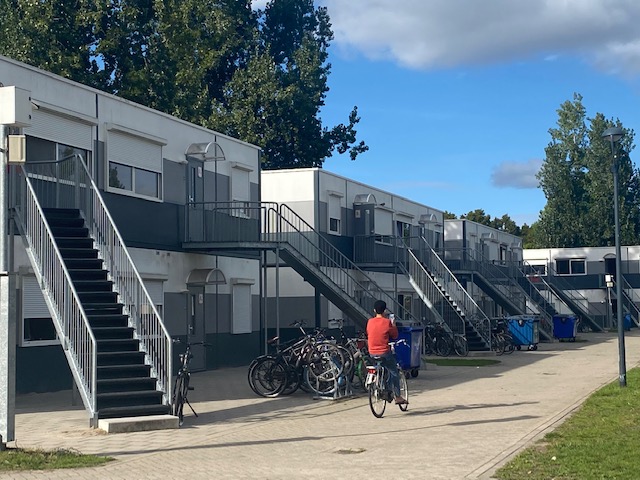Council of State rejects plan to curb refugee housing priority

The outgoing cabinet’s plan to stop giving refugees with residence permits priority for social housing if they are in urgent need has been criticised by the Council of State.
The government’s most senior advisory body said the draft legislation would lead to unequal treatment before the law and therefore conflict with the constitution. The bill, the council said, should not proceed in its present form.
Refugees with residence permits already have “a disadvantageous starting position on the housing market,” the Council of State said. But housing minister Mona Keijzer’s plan, it said, would prevent local authorities from compensating for that disadvantage.
Although the government has announced measures to improve the position of refugees, the council said it was not “realistic” to expect them to take effect quickly. “Residence permit holders will therefore remain at a disadvantage,” the advisory group said.
Many local authorities allocate social housing on the basis of waiting lists – which can be as long as 17 years in places such as Amsterdam.
Contrary to claims by far-right groups, refugees do not automatically have priority over Dutch nationals. If they are offered a home, they must accept it even if it does not fully meet their needs. If they refuse, they can be evicted from the refugee accommodation where they are living.
Keijzer’s proposal differs from an amendment tabled by far-right PVV MP Jeremy Mooiman, which was unexpectedly adopted in early July when several left-wing MPs were absent.
That plan would bar councils from granting urgent housing status to anyone without Dutch nationality, including asylum permit holders, students, labour migrants and foreign spouses of Dutch citizens. Keijzer said in August that the measure was unconstitutional.
Around 18,000 people are currently living in formal refugee accommodation who should already have moved to regular housing but cannot do so because of the shortage of homes. In principle, refugees must be housed within 10 weeks of receiving a residence permit, but this rarely happens.
Thank you for donating to DutchNews.nl.
We could not provide the Dutch News service, and keep it free of charge, without the generous support of our readers. Your donations allow us to report on issues you tell us matter, and provide you with a summary of the most important Dutch news each day.
Make a donation